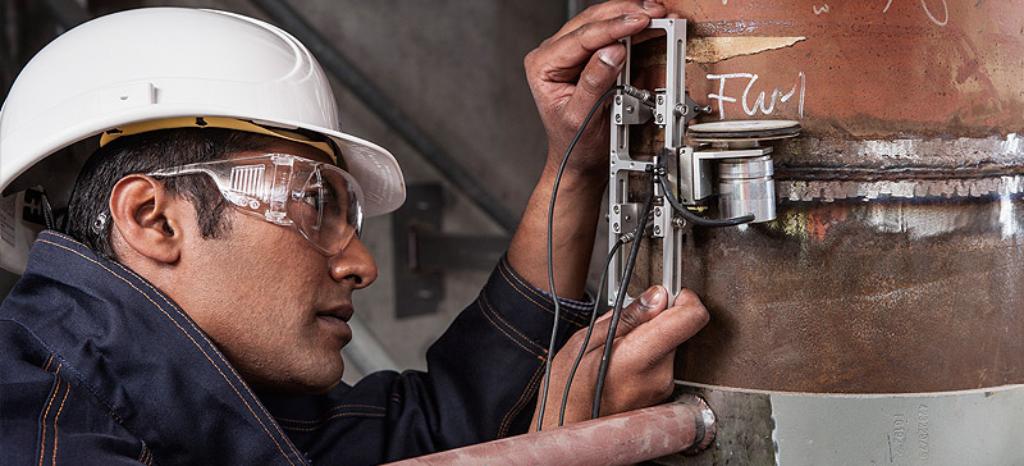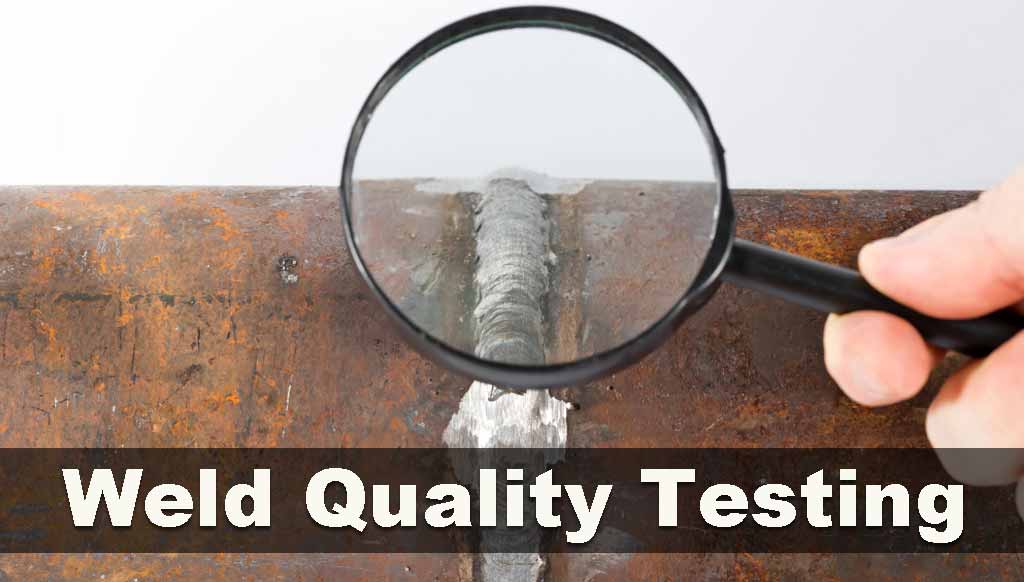Top Tips for Effective Welding Inspection in Gilbert Arizona: A Comprehensive Overview
The Influence of Rigorous Welding Examination on Industry Requirements: Promoting Security, Integrity, and Compliance Throughout Various Markets
The function of extensive welding assessment is progressively recognized as a crucial element in improving industry criteria, where security, reliability, and compliance take priority across varied markets. What improvements might we anticipate in welding techniques as the demand for quality and safety and security intensifies?
Importance of Welding Assessments
Recognizing the essential function of welding evaluations in maintaining high quality and safety criteria, market experts prioritize these evaluations to make sure structural honesty. Welding examinations function as a vital checkpoint in the construction procedure, identifying flaws that can compromise the longevity and safety of bonded frameworks. By systematically evaluating welds, examiners can detect problems such as insufficient infiltration, porosity, and cracks, which might not show up to the naked eye.
The value of these evaluations extends beyond plain conformity; they are vital for protecting lives and protecting financial investments. In crucial sectors such as aerospace, building, and manufacturing, a single defective weld can cause tragic failings, causing both financial loss and human casualties. Applying rigorous inspection procedures reduces these dangers and boosts overall project dependability.
In addition, constant welding inspections foster a culture of top quality across companies, urging welders to stick to best methods and preserve high criteria in their job. This commitment to quality not only improves functional performance yet also strengthens the track record of firms within their corresponding fields. Therefore, welding assessments are essential in promoting safety, integrity, and compliance throughout numerous markets.
Key Industry Specifications and Regulations
The structure of welding assessments is underpinned by a robust collection of industry requirements and regulations that regulate practices throughout numerous industries. Trick organizations, such as the American Welding Culture (AWS) and the International Company for Standardization (ISO), develop guidelines that guarantee quality and security in welding procedures. AWS D1.1 describes essential demands for welding steel frameworks, while ISO 3834 specifies top quality demands for fusion welding.
In enhancement to these particular requirements, sector policies like the American National Standards Institute (ANSI) and Occupational Safety And Security and Health Administration (OSHA) requireds even more boost conformity by establishing safety and security methods and functional best methods. These regulations are important in industries such as aerospace, production, and building and construction, where welding honesty is extremely important.
Moreover, sector-specific criteria, such as those from the American Culture of Mechanical Engineers (ASME) for stress vessels, give extra layers of scrutiny to ensure that welds fulfill rigorous security and performance standards. Adherence to these criteria not only helps with regulatory conformity yet additionally promotes a society of high quality and dependability across the welding sector, eventually protecting public well-being and improving functional effectiveness.

Advantages of Compliance and Integrity
Constantly sticking to sector standards and laws in welding examinations returns significant advantages, improving overall integrity and performance. The leading benefit is the guarantee of high quality in bonded joints, which directly adds to the security of frameworks and equipment. Conformity with recognized criteria decreases the danger of failure and tragic incidents, thus shielding both human life and important properties.
Furthermore, companies that focus on rigorous welding assessments cultivate a culture of liability and professionalism and trust. This dedication not only boosts the reputation of the company however additionally infuses confidence in stakeholders and customers pertaining to the integrity of product or services. Trusted welding processes result in decreased expenses connected with rework, fixings, and potential legal liabilities coming from below average handiwork.
In addition, keeping conformity with sector criteria promotes smoother governing communications, as companies can conveniently demonstrate adherence to necessary protocols (Welding Inspection Gilbert Arizona). This proactive method can result in helpful partnerships and chances within the market, as well as access to new markets
Challenges in Welding Inspection
Navigating the intricacies of welding examination offers a myriad of difficulties that can impede compliance with industry criteria. One substantial obstacle is the check variability in inspection strategies and modern technologies. Various markets may employ varied techniques, leading to inconsistencies in the evaluation of weld top quality. Moreover, the lack of standard training for examiners can result in diverse interpretations of examination standards, which may endanger security and reliability.
An additional difficulty hinges on the access of innovative assessment tools - Welding Inspection Gilbert Arizona. While innovations such as ultrasonic testing and radiography can boost detection capabilities, their implementation might be restricted by cost or accessibility, specifically in smaller operations. This difference can lead to a dependence on less efficient inspection techniques, boosting the threat of undetected resource defects
In addition, the busy nature of modern-day manufacturing typically stress assessors to focus on rate over thoroughness, possibly overlooking vital flaws. Last but not least, regulatory compliance can be intimidating because of the advancing nature of sector standards, leaving companies battling to stay up to you can look here date with the most recent needs. These challenges require constant enhancement in evaluation methods to guarantee the stability of welded structures throughout various sectors.
Future Trends in Welding Practices
Arising modern technologies and advancing methodologies are readied to transform welding methods in the coming years. Innovations in automation, such as robot welding systems, are getting grip, improving precision and effectiveness while reducing human error. These systems will certainly not only speed up manufacturing however also facilitate constant top quality control, attending to several of the difficulties encountered in hand-operated welding.
Furthermore, the combination of man-made intelligence (AI) and artificial intelligence into welding processes is poised to reinvent examination and tracking. Real-time data analytics will certainly enable anticipating maintenance, permitting for positive interventions that minimize downtime and increase safety and security. Furthermore, augmented truth (AR) and virtual truth (VIRTUAL REALITY) innovations are coming to be critical in training welders, providing immersive experiences that improve ability advancement without the threats related to standard methods.
Sustainability is also a crucial pattern, as sectors seek greener methods. The fostering of environmentally friendly materials and approaches, along with energy-efficient machinery, will likely end up being typical. As industries adjust to these adjustments, the focus will certainly change toward greater compliance with security and ecological laws, ensuring that welding practices not only satisfy present criteria yet also pave the way for a safer and even more lasting future.

Final Thought
In final thought, extensive welding evaluations significantly boost sector requirements by guaranteeing security, integrity, and compliance across numerous industries. As industries proceed to prioritize operational honesty, the significance of comprehensive inspections will just enhance, ultimately profiting businesses and culture at big.
The duty of extensive welding inspection is significantly acknowledged as a vital element in enhancing sector standards, where compliance, integrity, and safety take priority across diverse fields. Thus, welding assessments are essential in advertising safety and security, dependability, and conformity throughout numerous industries.
Secret establishments, such as the American Welding Society (AWS) and the International Organization for Standardization (ISO), develop standards that ensure high quality and safety and security in welding operations. AWS D1.1 details crucial requirements for welding steel structures, while ISO 3834 defines high quality needs for fusion welding.
In conclusion, extensive welding examinations significantly improve market criteria by making certain safety, dependability, and compliance throughout numerous sectors.